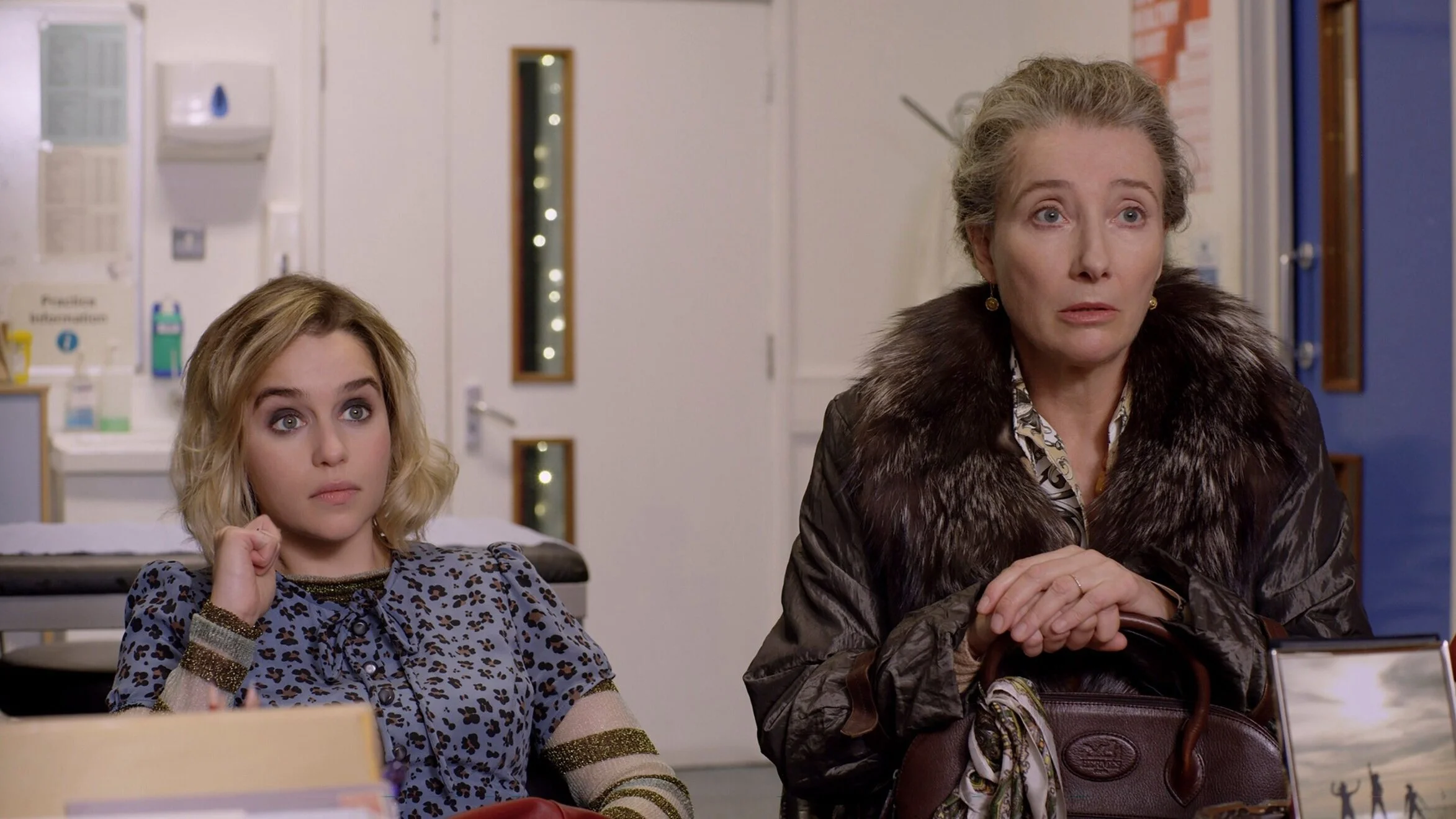Last Christmas
A bid to tell a Christmas tale suited to the present times.
Emilia Clarke and producer-screenwriter Emma Thompson
Before seeing this film, I had heard it suggested that the trailer for it was misleading because it gave no indication of how a seemingly conventional romantic Christmas tale had been transformed through the inclusion within it of contemporary social issues. That made it sound interesting, and all the more so because Emma Thompson, the chief figure in the devising of it (I use the term ‘chief’ because she shares the writing credit with Bryony Kimmings and the story credit with her husband Greg Wise), has gained a strong reputation as a screenwriter (the Nanny McPhee films, her adaptation of Sense and Sensibility).
Despite being directed by an American, Paul Feig of Bridesmaids, Last Christmas is a London piece through and through and as a love story telling of Kate (Emilia Clarke) and Tom (Henry Golding) it is building on earlier successes in that mould (Golding, so very English despite his Malaysian background, was surely chosen to echo the romantic appeal of Hugh Grant). Nevertheless, it is indeed the case that Thompson wants to touch on real present-day concerns in this work and, as the tale progresses, it involves attitudes to immigrants (Kate herself is someone who came here from Yugoslavia as a child), the plight of the homeless, the acceptance of those who happen to be lesbians and also what through underlining the need to reach out to others amounts to a riposte to Brexiteers.
That is all well and good as an aim, but to be effective it needs to be integrated into a setting which either creates a wholly mythical world of its own as in A Christmas Carol or else comes across as bearing some resemblance to the real world. Unfortunately the characters in Last Christmas have no reality at all, while no other film that I can think of is so sickly schmaltzy in its stress on Christmas (Kate works in a shop selling Xmas goods and dressed as an elf and even in the outside world the film’s visuals are dominated by Christmas lights and decorations). Placed in this context and in a tale that can accommodate an utterly nonsensical wooing of Kate’s boss (Michelle Yeoh) by an eccentric admirer (Peter Mygind) the social comment for all its validity feels quite out of place.
Golding is well cast, Clarke gives her all and Emma Thompson herself has a character role as Kate’s Yugoslav mother, but good acting cannot save the day. Some audiences may buy into it as a Christmas romcom backed by soundtrack songs of George Michael, but even they are likely to be divided when it comes to the crucial long-delayed plot twist which according to taste will be either overpoweringly romantic or just plain daft. You can readily discern the good intentions behind this movie but for many the fact that it comes from Calamity Films will seem all too apt.
MANSEL STIMPSON
Cast: Emilia Clarke, Henry Golding, Michelle Yeoh, Emma Thompson, Ritu Arya, Rob Delaney, Lydia Leonard, Peter Serafinowicz, Sara Powell, Peter Mygind, Boris Isakovic, Bilal Zafar, Ansu Kabia, Laura Evelyn, Ingrid Oliver, Rebecca Root, Sue Perkins, Lucy Miller, Ben Owen-Jones, David Hargreaves, Anna Calder-Marshall, Jade Anouka, Amit Shah, Andrew Ridgley.
Dir Paul Feig, Pro Erik Baiers, Jessie Henderson, David Livingstone and Emma Thompson, Screenplay Emma Thompson and Bryony Kimmings, from a story by Emma Thompson and Greg Wise, Ph John Schwartzman, Pro Des Gary Freeman, Ed Brent White, Music Theodore Shapiro, Costumes Renee Ehrlich Kalfus.
Calamity Films/Feigco Entertainment/Perfect World Pictures/Universal Pictures-Universal Pictures.
102 mins. UK/USA. 2019. Rel: 15 November 2019. Cert. 12A.


